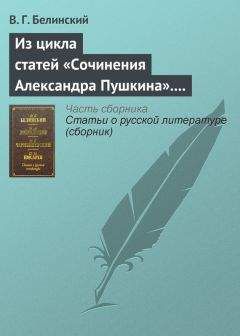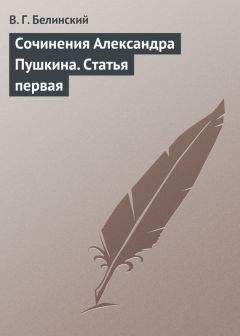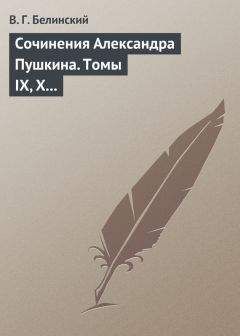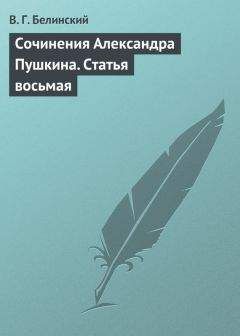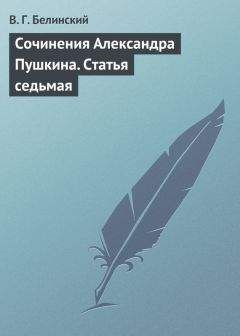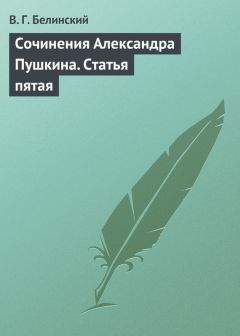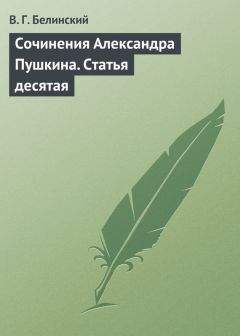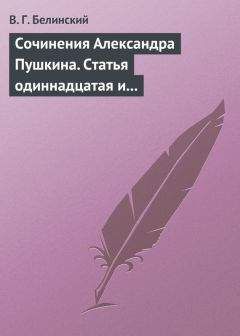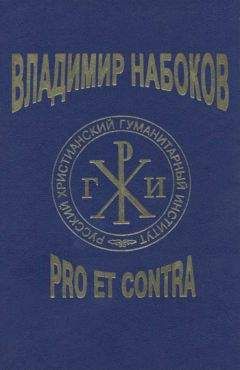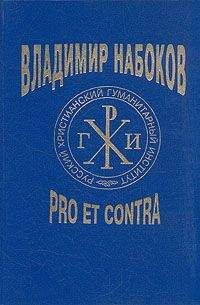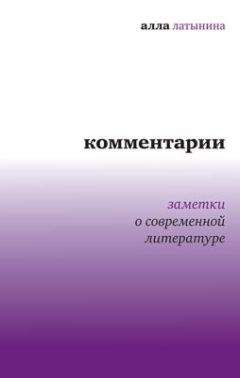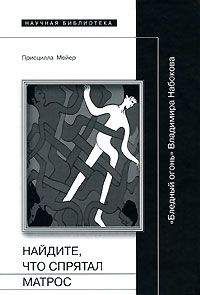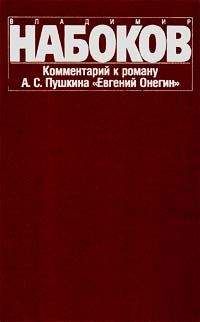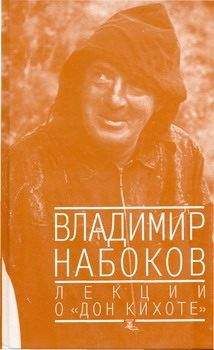Владимир Набоков - Комментарии к «Евгению Онегину» Александра Пушкина
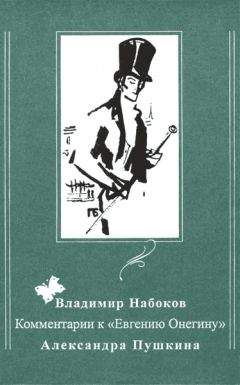
Скачивание начинается... Если скачивание не началось автоматически, пожалуйста нажмите на эту ссылку.
Жалоба
Напишите нам, и мы в срочном порядке примем меры.
Описание книги "Комментарии к «Евгению Онегину» Александра Пушкина"
Описание и краткое содержание "Комментарии к «Евгению Онегину» Александра Пушкина" читать бесплатно онлайн.
Комментарии В. В. Набокова освещают многообразие исторических, литературных и бытовых сторон романа. Книга является оригинальным произведением писателя в жанре научно-исторического комментария. Набоков обращается к «потаенным слоям» романа, прослеживает литературные влияния, связи «Евгения Онегина» с другими произведениями поэта, увлекательно повествует о тайнописи Пушкина.
Предназначена для широкого круга читателей и в первую очередь — для преподавателей и студентов гуманитарных вузов, а также для учителей и учащихся средней школы.
XXXVIII
A malady, the cause of which'tis high time were discovered,
similar to the English “spleen” —
4 in short, the Russian “chondria” —
possessed him by degrees.
To shoot himself, thank God,
he did not care to try,
8 but toward life became quite cold.
He like Childe Harold, gloomy, languid,
appeared in drawing rooms;
neither the gossip of the monde nor boston,
12 neither a winsome glance nor an immodest sigh,
nothing touched him;
he noticed nothing.
XXXIX. XL. XLI.
. . . . . . . . . . . . . . . . . . .
. . . . . . . . . . . . . . . . . . .
XLII
Before all others you he left;
and it is true that in our years
4 the upper ton is rather tedious.
Although, perhaps, this or that dame
interprets Say and Bentham,
in general their conversation
8 is insupportable, though harmless tosh.
On top of that they are so pure,
so stately, so intelligent,
so full of piety,
12 so circumspect, so scrupulous,
so inaccessible to men,
that the mere sight of them begets the spleen.7
XLIII
at a late hour daredevil droshkies
carry away over the pavement
4 of Petersburg,
you also were abandoned by my Eugene.
Apostate from the turbulent delights,
Onegin locked himself indoors;
8 yawning, took up a pen;
wanted to write; but persevering toil
to him was loathsome: nothing
from his pen issued, and he did not get
12 into the cocky guild of people
on whom I pass no judgment — for the reason
that I belong to them.
XLIV
oppressed by emptiness of soul,
he settled down with the laudable aim
4 to make his own another's mind;
he crammed a shelf with an array of books,
and read, and read — and all for nothing:
here there was dullness; there, deceit and raving;
8 this one lacked conscience; that one, sense;
on all of them were different fetters;
and outworn was the old, and the new raved
about the old.
12 As he'd left women, he left books
and, with its dusty tribe, the shelf
with funerary taffeta he curtained.
XLV
having, as he, from vain pursuits desisted,
with him I made friends at that time.
4 I liked his traits,
to dreams the involuntary addiction,
nonimitative oddity,
and sharp, chilled mind;
8 I was embittered, he was gloomy;
the play of passions we knew both;
on both, life weighed;
in both, the heart's glow had gone out;
12 for both, there was in store the rancor
of blind Fortuna and of men
at the very morn of our days.
XLVI
cannot help in his soul despising men;
him who has felt disturbs
4 the ghost of irrecoverable days;
for him there are no more enchantments;
him does the snake of memories,
him does repentance gnaw.
8 All this often imparts
great charm to conversation.
At first, Onegin's language
would disconcert me; but I grew
12 accustomed to his biting argument
and banter blent halfwise with bile
and virulence of somber epigrams.
XLVII
and luminous is the nocturnal sky
above the Neva,8 and the gay
4 glass of the waters
does not reflect Diana's visage —
rememorating intrigues of past years,
rememorating a past love,
8 impressible, carefree again,
the breath of the benignant night
we mutely quaffed!
As to the greenwood from a prison
12 a slumbering clogged convict is transferred,
so we'd be carried off in fancy
to the beginning of young life.
XLVIII
and leaning on the granite,
Eugene stood pensive — as himself
4 the Poet9 has described.
'Twas stillness all; only night sentries
to one another called,
and the far clip-clop of some droshky
8 resounded suddenly from Million Street;
only a boat, oars swinging,
swam on the dozing river,
and, in the distance, captivated us
12 a horn and a brave song.
But, 'mid the night's diversions, sweeter
is the strain of Torquato's octaves.
XLIX
O Brenta! Nay, I'll see you
and, filled anew with inspiration,
4 I'll hear your magic voice!
'Tis sacred to Apollo's nephews;
through the proud lyre of Albion
to me 'tis known, to me 'tis kindred.
8 In the voluptuousness of golden
Italy's nights at liberty I'll revel,
with a youthful Venetian,
now talkative, now mute,
12 swimming in a mysterious gondola;
with her my lips will find
the tongue of Petrarch and of love.
L
'Tis time, 'tis time! To it I call;
I roam above the sea,10 I wait for the right weather,
4 I beckon to the sails of ships.
Under the cope of storms, with waves disputing,
on the free crossway of the sea
when shall I start on my free course?
8 'Tis time to leave the dull shore of an element
inimical to me,
and sigh, 'mid the meridian swell, beneath the
sky of my Africa,11
12 for somber Russia, where
I suffered, where I loved,
where I buried my heart.
LI
to see strange lands;
but soon we were to be by fate
4 sundered for a long time.
'Twas then his father died.
Before Onegin there assembled
a greedy host of creditors.
8 Each has a mind and notion of his own.
Eugene, detesting litigations,
contented with his lot,
abandoned the inheritance to them,
12 perceiving no great loss therein,
or precognizing from afar
the demise of his aged uncle.
LII
got from the steward
a report that his uncle was nigh death in bed
4 and would be glad to bid farewell to him.
Eugene, the sad epistle having read,
incontinently to the rendezvous
drove headlong, traveling post,
8 and yawned already in anticipation,
preparing, for the sake of money,
for sighs, boredom, and guile
(and 'tis with this that I began my novel);
12 but when he reached apace his uncle's manor,
he found him laid already on the table
as a prepared tribute to earth.
LIII
to the dead man from every side
came driving foes and friends,
4 enthusiasts for funerals.
The dead man was interred,
the priests and guests ate, drank,
and solemnly dispersed thereafter,
8 as though they had been sensibly engaged.
Now our Onegin is a rural dweller,
of workshops, waters, forests, lands,
absolute lord (while up to then he'd been
12 an enemy of order and a wastrel),
and very glad to have exchanged
his former course for something.
LIV
seemed the secluded fields,
the coolness of the somber park,
4 the bubbling of the quiet brook;
by the third day, grove, hill, and field
did not engage him any more;
then somnolence already they induced;
8 then plainly he perceived
that in the country, too, the boredom was the same,
although there were no streets, no palaces,
no cards, no balls, no verses.
12 The hyp was waiting for him on the watch,
and it kept running after him
like a shadow or faithful wife.
LV
for country quiet:
the lyre's voice in the wild is more resounding,
4 creative dreams are more alive.
To harmless leisures consecrated,
I wander by a wasteful lake
and far niente is my rule.
8 By every morn I am awakened
unto sweet mollitude and freedom;
little I read, a lot I sleep,
volatile fame do not pursue.
12 Was it not thus in former years,
that in inaction, in the [shade],
I spent my happiest days?
LVI
Подписывайтесь на наши страницы в социальных сетях.
Будьте в курсе последних книжных новинок, комментируйте, обсуждайте. Мы ждём Вас!
Похожие книги на "Комментарии к «Евгению Онегину» Александра Пушкина"
Книги похожие на "Комментарии к «Евгению Онегину» Александра Пушкина" читать онлайн или скачать бесплатно полные версии.
Мы рекомендуем Вам зарегистрироваться либо войти на сайт под своим именем.
Отзывы о "Владимир Набоков - Комментарии к «Евгению Онегину» Александра Пушкина"
Отзывы читателей о книге "Комментарии к «Евгению Онегину» Александра Пушкина", комментарии и мнения людей о произведении.







